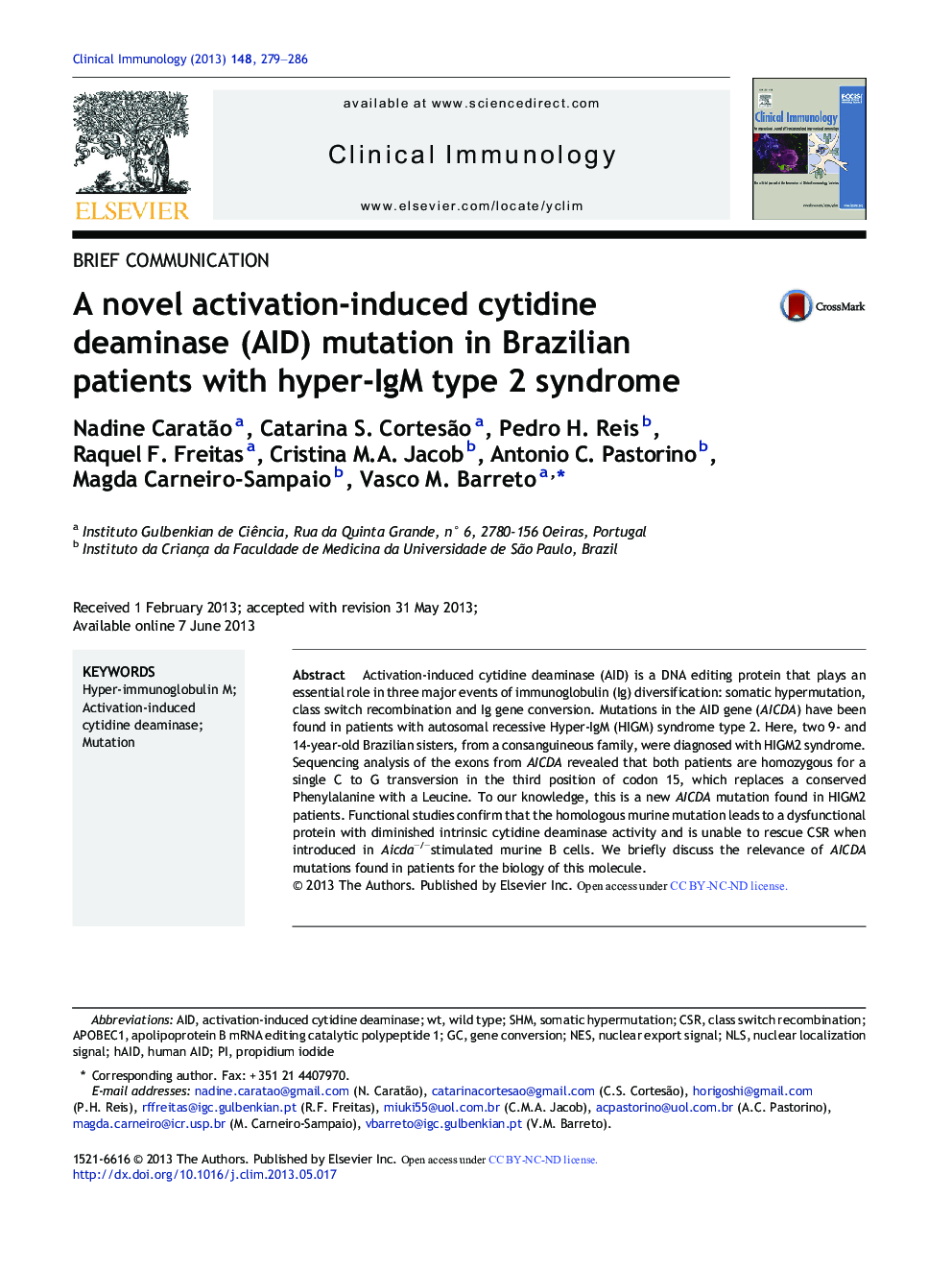| کد مقاله | کد نشریه | سال انتشار | مقاله انگلیسی | نسخه تمام متن |
|---|---|---|---|---|
| 6087705 | 1207379 | 2013 | 8 صفحه PDF | دانلود رایگان |

- AIDF15L is a new mutation in AID associated with hyper-IgM type 2 syndrome.
- AIDF15L has low but detectable cytidine deaminase in vitro.
- AIDF15L enters the nucleus, but does not induce class switching.
Activation-induced cytidine deaminase (AID) is a DNA editing protein that plays an essential role in three major events of immunoglobulin (Ig) diversification: somatic hypermutation, class switch recombination and Ig gene conversion. Mutations in the AID gene (AICDA) have been found in patients with autosomal recessive Hyper-IgM (HIGM) syndrome type 2. Here, two 9- and 14-year-old Brazilian sisters, from a consanguineous family, were diagnosed with HIGM2 syndrome. Sequencing analysis of the exons from AICDA revealed that both patients are homozygous for a single C to G transversion in the third position of codon 15, which replaces a conserved Phenylalanine with a Leucine. To our knowledge, this is a new AICDA mutation found in HIGM2 patients. Functional studies confirm that the homologous murine mutation leads to a dysfunctional protein with diminished intrinsic cytidine deaminase activity and is unable to rescue CSR when introduced in Aicdaâ/âstimulated murine B cells. We briefly discuss the relevance of AICDA mutations found in patients for the biology of this molecule.
Journal: Clinical Immunology - Volume 148, Issue 2, August 2013, Pages 279-286